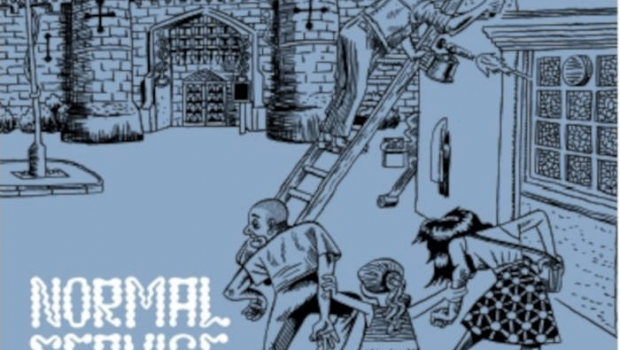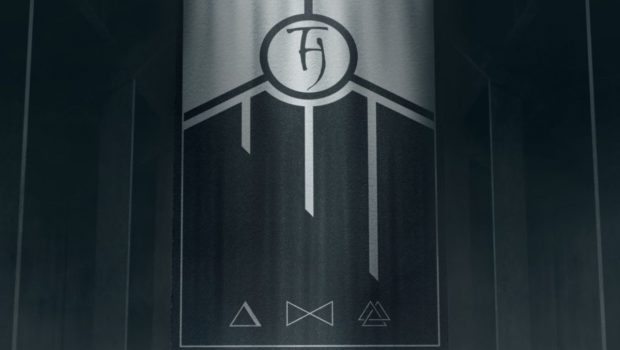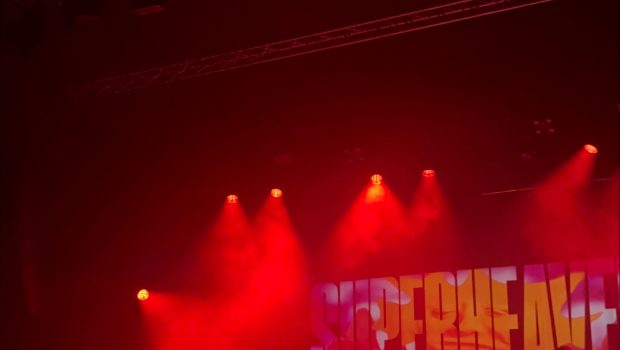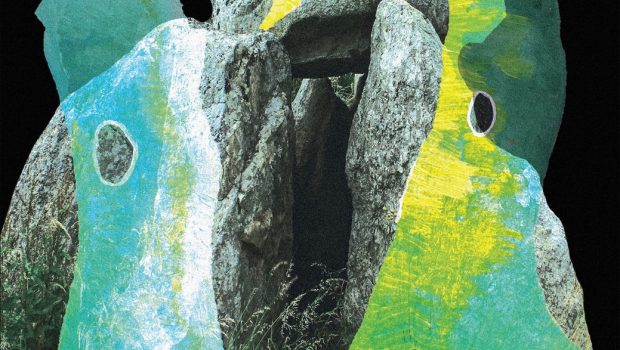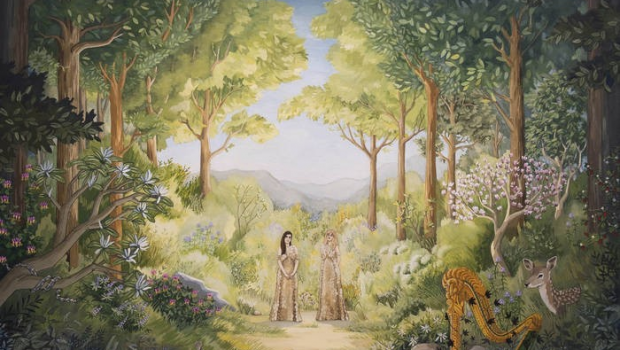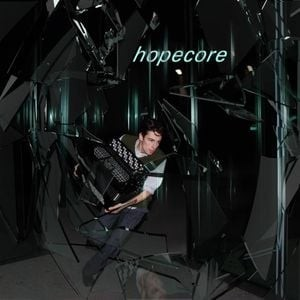 If you’re a regular in the galactic digital aether we call the Internet, you will have come across the tag ‘hopecore’. A trend that has proliferated on platforms like Tiktok, it has become associated with a particular brand of short video, distinctive by the plaintive synth-pad soundscapes ever-present in the background, created with the intention of moving and inspiring those who view them. Whether or not Anatole Muster, the Swiss, London-based accordionist who has christened his latest album with this new term, was moved and inspired by these videos enough to do so, I’m not sure. But, of the musician’s ability to harness his compositional and technical skills to evoke feelings of euphoria, contentment and hope, after listening to this record, I am in no doubt.
If you’re a regular in the galactic digital aether we call the Internet, you will have come across the tag ‘hopecore’. A trend that has proliferated on platforms like Tiktok, it has become associated with a particular brand of short video, distinctive by the plaintive synth-pad soundscapes ever-present in the background, created with the intention of moving and inspiring those who view them. Whether or not Anatole Muster, the Swiss, London-based accordionist who has christened his latest album with this new term, was moved and inspired by these videos enough to do so, I’m not sure. But, of the musician’s ability to harness his compositional and technical skills to evoke feelings of euphoria, contentment and hope, after listening to this record, I am in no doubt.
Employing a kaleidoscopic array of sounds and enlisting several other exemplary instrumentalists on ‘hopecore,’ Muster invites us to sit back, wrest ourselves from the notoriously powerful grip of the present and, for half an hour, drift off into a place where time is irrelevant and everything comes with a pleasant sheen to it. Bolstered by crisp, clear production, each song offers the listener an opportunity to relax, or groove, or reflect, or, conversely, to forget; in short, this album is a means of escape.
Though one could infer from that statement a negative (and, some would argue, true) connotation – that the world as it is today is a place to seek refuge from – the warm, bright tone that permeates ‘hopecore’ sees it provide, alongside escapism, a genuine sense of optimism, both for the present and the future. Take the album’s first track, ‘Just another step,’ in which Muster layers atop waves of accordion chords arpeggiated keyboard melodies that weave in and out of each other and sings of a departed lover. Though intelligibly a memory that brings with it a degree of sadness, the song ending with Muster’s repetition of the titular refrain suggests that, in spite of the circumstances, he intends to keep on going, even if that means one step at a time.
You may have been intrigued, upon reading this review, to learn of Anatole Muster’s instrument of choice. Then, even more so, by the fact that he infuses the accordion’s distinctively reedy tone with a mixture of electro-pop, jazz and funk. This unique melange of genres and instrumentation, however, makes ‘hopecore’ an essential listen: Muster, though only 23 years old, has cultivated a truly singular sound of his own, and his recent experimentation with it has culminated in this collection of beautiful songs.
On the accordion, Muster is nothing short of mesmerising. One of the singles from ‘hopecore,’ as well as one of its highlights, ‘i’ve never missed a plane’ commences with a swirling, hypnotic arpeggio, soon accompanied by an inexplicably lovely swell of chords; the versatility of his chosen instrument demonstrated to stunning effect here. A student of jazz music, his proficiency as a soloist is also given a spotlight on tracks like ‘frisbee’ – which features video game music-inspired jazz musicians Button Masher and BATTERY – and ‘see that view,’ a samba-inflected number Muster wrote after a stint in Brazil, through which he met the song’s featured bassist, Frederico Heliodoro.
Muster’s skill as an instrumentalist and composer in general is just as impressive. Another standout, ‘All my friends love melodies’ is endearingly colourful, opening with a 90s house keyboard lick before giving way to an inspired sequence wherein chops of Muster singing scat-style are arranged as if to create an audio-form collage. ‘M Field Music’ combines the staccato guitar melodies of fellow London resident M Field with Muster’s soaring harmonies; his repetition of the line ‘don’t try to find me’ only enhancing the song’s mystical quality. Moreover, just going off its left-field vocal melody and idiosyncratic drum pattern, one could easily mistake ‘skydog’ as being a composition by modern jazz luminary Louis Cole (alongside whom Muster has performed).
Extending the already considerable list of things to be celebrated about ‘hopecore,’ I appreciated the balance Muster has struck across its 13-strong tracklist between the upbeat, uptempo songs, those with a calmer, more contemplative air and those that straddle those descriptions. To have the Oklou-esque ‘No love,’ one of two songs on the record embellished by the soothing voice of Amelia Rose, precede ‘frisbee,’ or the title track, whose dreamy, crystalline synth-pad and fretless bass echo the works of Vekroid and James Ferraro associated with vaporwave, a microgenre of electronic music, followed by ‘see that view,’ is bold of the young musician. In presenting us with such an array of sounds and styles, Muster guarantees a listening experience that is both captivating and eye(/ear?)-opening.
Before you go and save ‘hopecore,’ let me gush a bit about the song on the album that scratches the musical itch in my head the most. Short and stunning, ‘little spider’ begins with a heavenly accordion chord, joined almost instantly by a gorgeous arpeggio that alternates the main melody with Muster, whose vocal performance here is especially charming. Though sparser compositionally than other tracks on the record, the wave of emotion that ‘little spider’ elicits (at least, in me) in spite of its relative simplicity is testament to Muster’s ability to capitalise on a sound’s pre-existing beauty just by applying to it his extraordinary ear for melody.
So, if you’re looking for thirty minutes’ worth of music that itches your brain in just the right ways, Anatole Muster is your man and his latest release, your answer.
Anatole Muster: Hopecore – Out 16 May 2025



